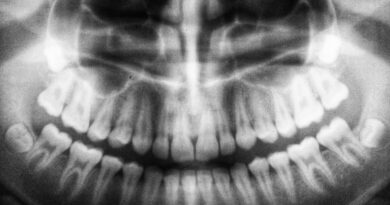Exploring the Frontier: The Transformative Role of Artificial Intelligence in Alzheimer’s Disease
JADCOM Media posts and/or links to retailers can be advertising, sponsored, or affiliate links.
We may earn a small commission from them. Thank you.
Alzheimer’s disease, a progressive neurodegenerative disorder, poses one of the greatest challenges in modern medicine. As the global population ages, the prevalence of Alzheimer’s is on the rise, necessitating continuous advancements in treatment strategies.
Here, we delve into the evolving landscape of advanced Alzheimer’s disease treatment, exploring the latest breakthroughs, therapeutic approaches, and the promise they hold for patients and their families.
Before we explore the latest treatments, it’s crucial to understand the nature of Alzheimer’s disease. Characterized by the accumulation of beta-amyloid plaques and tau tangles in the brain, Alzheimer’s leads to cognitive decline, memory loss, and impaired daily functioning.
Traditional treatments have focused on managing symptoms, but recent research is steering towards more targeted interventions aimed at modifying the course of the disease.
Causes and Symptoms
Alzheimer’s disease, a formidable challenge in the realm of neurodegenerative disorders, has multifaceted origins and presents an intricate web of symptoms. The primary cause of Alzheimer’s lies in the abnormal accumulation of beta-amyloid plaques and tau protein tangles in the brain. These buildups disrupt communication between nerve cells and trigger inflammation, leading to the gradual deterioration of brain tissue.
As for symptoms, Alzheimer’s manifests in a range of cognitive and functional impairments. Early stages often involve:
- Subtle memory lapses
- Difficulty concentrating
- Challenges in problem-solving.
As the disease progresses, individuals may experience profound memory loss, language difficulties, and disruptions in spatial orientation. Behavioral changes, mood swings, and a decline in the ability to perform daily tasks become more pronounced, affecting the individual’s overall quality of life.
Understanding the intricate interplay of causes and symptoms is crucial for early detection and intervention, offering a potential gateway to more effective treatments and improved outcomes for those navigating the complexities of Alzheimer’s disease.
Research Breakthroughs
Alzheimer’s is highly prevalent across the globe, especially among older adults. Recent years have witnessed significant breakthroughs in understanding the underlying mechanisms of Alzheimer’s.
Advances in neuroimaging techniques, such as positron emission tomography (PET) scans and magnetic resonance imaging (MRI), have allowed researchers to visualize the progression of the disease in unprecedented detail. This enhanced understanding has paved the way for novel therapeutic targets.
Role of AI
Artificial Intelligence (AI) is emerging as a powerful ally in the battle against Alzheimer’s disease, offering innovative solutions across various stages of research, diagnosis, and treatment. In the realm of Alzheimer’s, AI is proving to be a game-changer, contributing in several key areas:
Early Detection and Diagnosis
AI algorithms, when applied to neuroimaging data, can detect subtle patterns and anomalies that might escape the human eye. Machine learning models analyze brain scans, such as MRI and PET images, to identify biomarkers indicative of Alzheimer’s in its early stages.
Early detection enables timely intervention and the implementation of strategies to slow the progression of the disease.
Predictive Analytics
AI is enhancing our ability to predict the risk of Alzheimer’s development. By analyzing a combination of genetic, lifestyle, and clinical data, machine learning models can generate personalized risk profiles. This allows for targeted interventions and lifestyle modifications tailored to an individual’s unique risk factors.
Drug Discovery and Development
The drug discovery process for Alzheimer’s is a complex and time-consuming endeavor. AI accelerates this process by sifting through vast datasets to identify potential drug candidates. Machine learning algorithms can predict the effectiveness of compounds, significantly reducing the time and resources required for drug development.
Cognitive Training and Rehabilitation
AI-powered cognitive training applications are proving beneficial for individuals in the early stages of Alzheimer’s. These applications offer personalized exercises to stimulate cognitive functions, providing a form of rehabilitation.
Adaptive algorithms adjust the difficulty level based on the individual’s cognitive abilities, offering a tailored approach to cognitive training.
Monitoring and Personalized Care
AI technologies contribute to continuous monitoring and personalized care plans for Alzheimer’s patients. Wearable devices and smart home technologies, integrated with AI algorithms, can track daily activities and detect deviations from routine.
This information helps caregivers and healthcare professionals provide timely assistance and adapt care plans based on real-time data.
Natural Language Processing for Behavioral Analysis
Natural Language Processing (NLP) techniques are employed to analyze written or spoken language patterns. In Alzheimer’s patients, changes in language and communication are early indicators. AI-driven NLP can assist in identifying linguistic markers associated with cognitive decline, aiding in early diagnosis and ongoing monitoring.
As we navigate the complex landscape of Alzheimer’s disease, AI stands as a beacon of hope, offering not only novel approaches to understanding and diagnosing the condition but also accelerating the development of effective treatments.
‘The synergy between human expertise and artificial intelligence is paving the way for a future where the impact of Alzheimer’s is significantly mitigated, bringing us closer to more comprehensive and personalized care for those affected by this challenging neurodegenerative disorder.

Challenges and Future Directions
While advancements in Alzheimer’s treatment are promising, significant challenges persist. Issues such as early detection, accurate diagnosis, and equitable access to emerging therapies need to be addressed. Future research directions may include exploring the gut-brain axis, the role of inflammation, and the potential benefits of emerging technologies, such as artificial intelligence, in predicting and managing Alzheimer’s disease.
The landscape of advanced Alzheimer’s disease treatment is undergoing a transformative shift, with researchers and healthcare professionals striving to unlock the mysteries of this complex condition. From targeted therapies to precision medicine and holistic interventions, the journey towards effective Alzheimer’s treatment is multifaceted.
As science continues to progress, the hope is that these advancements will translate into tangible improvements in the lives of those affected by Alzheimer’s and bring us closer to a future where the devastating impact of this disease is significantly mitigated.



